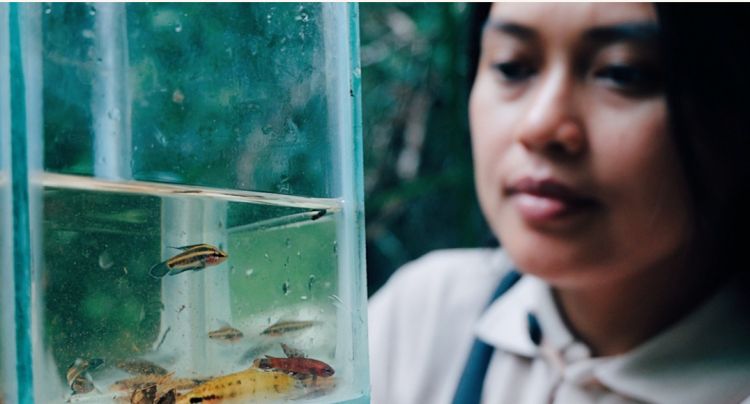The Betta burdigala project – saving a species

Bettas of Bangka Island are small fishes who can breathe atmospheric oxygen and construct nests out of air bubbles and saliva to protect their eggs and young.
Bettas of Bangka Island are small fishes who can breathe atmospheric oxygen and construct nests out of air bubbles and saliva to protect their eggs and young.
The Betta burdigala project focuses on the conservation of a critically endangered peat swamp fish in Indonesia. The fish are acidic, blackwater swamp specialists and can only thrive in the flooded peat swamp forest on Bangka, Indonesia.
The project led by is led by Universitas Airlangga, Universitas Bangka-Belitung, University of Leeds, and National University of Singapore and supported by SHOAL and Asian Species Action Partnership.
A film has been produced to raise awareness and funding to get continuation funds for the project, as well as buying land for a sanctuary as the last remaining habitat is starting to be sold for oil palm plantations.
Project member Dr Josie South, Lecturer in aquatic ecology and invasion biology in the Faculty of Biological Sciences, said, ‘These fish face rapid habitat destruction of the peat swamps for palm oil plantations and urbanization, a problem compounded by rampant plastic pollution. This encroachment destroys their small habitat, fragments the population, and reduces genetic diversity.’
The project was recently featured in the Revelator, a news and ideas initiative of the Center for Biological Diversity and can be read here.
A film has been produced to raise awareness and funding to get continuation funds for the project, as well as buying land for a sanctuary as the last remaining habitat is starting to be sold for oil palm plantations.
The Betta burdigala project are creating a Yayasan (Indonesian Trust) to care for the land, which will be headed by a community representative. Funds will also be used for the representative to recruit a BSc at the local university to help train them in conservation.
The project is currently funded by SHOAL who work together to safeguard the health of Earth's freshwater habitat and species and ASAP Nature.




